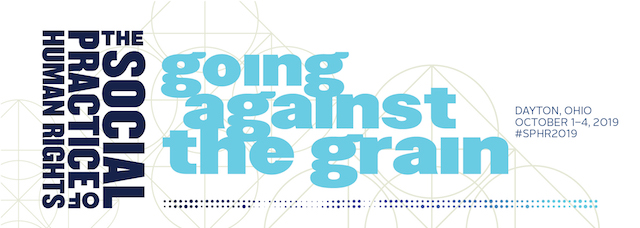Location
Rethinking Transitional Justice
Start Date
10-3-2019 11:00 AM
End Date
10-3-2019 12:30 PM
Keywords
Transitional Justice, Colombia, Arab Spring
Abstract
Transitional processes have nowhere failed as spectacularly than in the wake of the Arab Spring's "revolutions." Contrary to popular expectations, these revolutions gave way to counter-revolutions rather than transitions to democracy and pluralistic politics. This article argues that, by settling for transitions to mere formal democracies, an opportunity was lost to engage in necessary structural change. While understandable that transitional processes shied away from addressing controversial issues -- including how to translate diversity in religious, gender, sexual, and ideological domains into the foundation of new political communities -- not doing so was a fatal error as it left untouched preexisting structures of power. This reflects a traditional conservativism in human rights discourse in the political, social, and economic realms. This article argues that this needs to be addressed: human rights need to be less deferential to state ideologies and more explicit about the need for politically pluralistic foundations; human rights also need to be conceptualized as more rather than less socially expansive, inclusive of attention to sexual minorities even when that can seemingly breed backlash; and, economically, human rights need to be more specific in re translating the long agreed upon indivisibility of rights into actual human rights-informed policy that can provide needed alternatives to the economic status quo. The urgent need for more political, socially, and economically radical conceptualizations of human rights is embodied both by Arab revolutions’ failures. With Colombia's ambitiously conceptualized transitional process already stumbling, there may well be lessons to be learned about the efficacy of a more or less ambitious approach from these failures.
Author/Speaker Biographical Statement(s)
Anthony Tirado Chase Professor Interim Chair, Young Initiative on the Global Political Economy Occidental College
Included in
International Relations Commons, Latin American Studies Commons, Near and Middle Eastern Studies Commons, Other Legal Studies Commons
On the Need for Human Rights to Constitute Structural Change: Lessons for Colombia from the Arab Spring’s Failures
Rethinking Transitional Justice
Transitional processes have nowhere failed as spectacularly than in the wake of the Arab Spring's "revolutions." Contrary to popular expectations, these revolutions gave way to counter-revolutions rather than transitions to democracy and pluralistic politics. This article argues that, by settling for transitions to mere formal democracies, an opportunity was lost to engage in necessary structural change. While understandable that transitional processes shied away from addressing controversial issues -- including how to translate diversity in religious, gender, sexual, and ideological domains into the foundation of new political communities -- not doing so was a fatal error as it left untouched preexisting structures of power. This reflects a traditional conservativism in human rights discourse in the political, social, and economic realms. This article argues that this needs to be addressed: human rights need to be less deferential to state ideologies and more explicit about the need for politically pluralistic foundations; human rights also need to be conceptualized as more rather than less socially expansive, inclusive of attention to sexual minorities even when that can seemingly breed backlash; and, economically, human rights need to be more specific in re translating the long agreed upon indivisibility of rights into actual human rights-informed policy that can provide needed alternatives to the economic status quo. The urgent need for more political, socially, and economically radical conceptualizations of human rights is embodied both by Arab revolutions’ failures. With Colombia's ambitiously conceptualized transitional process already stumbling, there may well be lessons to be learned about the efficacy of a more or less ambitious approach from these failures.



